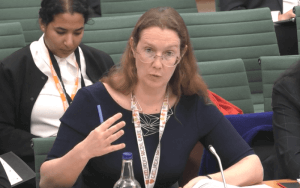A major investigation by the Independent Inquiry into Child Sexual Abuse (IICSA) has called for tougher inspection and oversight of residential special schools, after hearing how some teachers exploited their positions to groom and abuse disabled pupils.
A report on the investigation, which also examined sexual abuse that took place at residential specialist music settings and other schools, says it highlights “shocking and horrific” cases of abuse.
The report says many of those in positions of authority and responsibility had not been held to account for their failure to halt and prevent the abuse, while many perpetrators had not been brought to justice.
It says that disabled children are three times more likely than non-disabled children to experience sexual abuse.
But the report, which examines abuse that took place in England and Wales, says there have been relatively few convictions for sexual abuse of children in residential special schools because of their difficulties in disclosing the abuse and providing evidence.
It also warns of the “limited” advocacy services for disabled children in England and Wales, despite the importance of disabled children “having access to individuals independent of their schools who can listen to them and advocate for them”.
The report says this issue “has been raised a number of times before”.
When asked whether independent advocacy for disabled children needed to be looked at again, Dame Christine Lenehan, director of the Council for Disabled Children, told the inquiry: “I think it’s been looked at again, and again, and again in the last 20 years.
“I think the honest answer is that people won’t resource it effectively because they don’t see it as important enough.”
Victims and survivors of sexual abuse have told the inquiry that the combination of their impairments and their schools’ distance from their parental homes had made them particularly vulnerable.
The report also says that local authority oversight of the residential special school sector is “not sufficiently robust”.
Local authorities for the areas where residential special schools are located “sometimes lack information on these schools and the needs of their pupils”, while those councils that have placed disabled children in schools in other parts of the country “do not always visit pupils regularly”.
The report says that the size of the residential special school sector fell from 7,600 pupils boarding in residential special schools in England in 2010 to fewer than 4,000 pupils in 2019, largely because more children were attending local schools.
It says there is “broad consensus” between Ofsted – the education and care watchdog in England – the Care Inspectorate Wales, the Welsh government and Dame Christine that “changes to inspection and oversight of residential special schools were needed”.
Among the report’s recommendations, it calls for residential special schools in England and Wales to be inspected against tougher standards.
It also calls for an urgent review of relationships, sex and health education (RSHE) for children with special educational needs and disabilities in both mainstream settings and special schools in England and Wales.
And it says the Department for Education, covering England, and the Welsh government should reintroduce a duty on boarding schools and residential special schools to inform the relevant inspectorate of any allegations of child sexual abuse and other serious incidents.
Professor Alexis Jay (pictured), the inquiry’s chair, said: “Day and residential schools play a key role in keeping children safe from harm, but despite 20 years of enhanced focus on safeguarding they are not as safe for children as they should be.
“This must change.”
A note from the editor:
Please consider making a voluntary financial contribution to support the work of DNS and allow it to continue producing independent, carefully-researched news stories that focus on the lives and rights of disabled people and their user-led organisations.
Please do not contribute if you cannot afford to do so, and please note that DNS is not a charity. It is run and owned by disabled journalist John Pring and has been from its launch in April 2009.
Thank you for anything you can do to support the work of DNS…

 Mainstream is usually much cheaper, with ‘similar or better outcomes’ for disabled pupils, MPs are told
Mainstream is usually much cheaper, with ‘similar or better outcomes’ for disabled pupils, MPs are told Children’s commissioner ‘increasingly dismayed’ at numbers ‘deprived of liberty by the state’
Children’s commissioner ‘increasingly dismayed’ at numbers ‘deprived of liberty by the state’ Police and councils ‘must do more to protect disabled children from sexual exploitation’
Police and councils ‘must do more to protect disabled children from sexual exploitation’